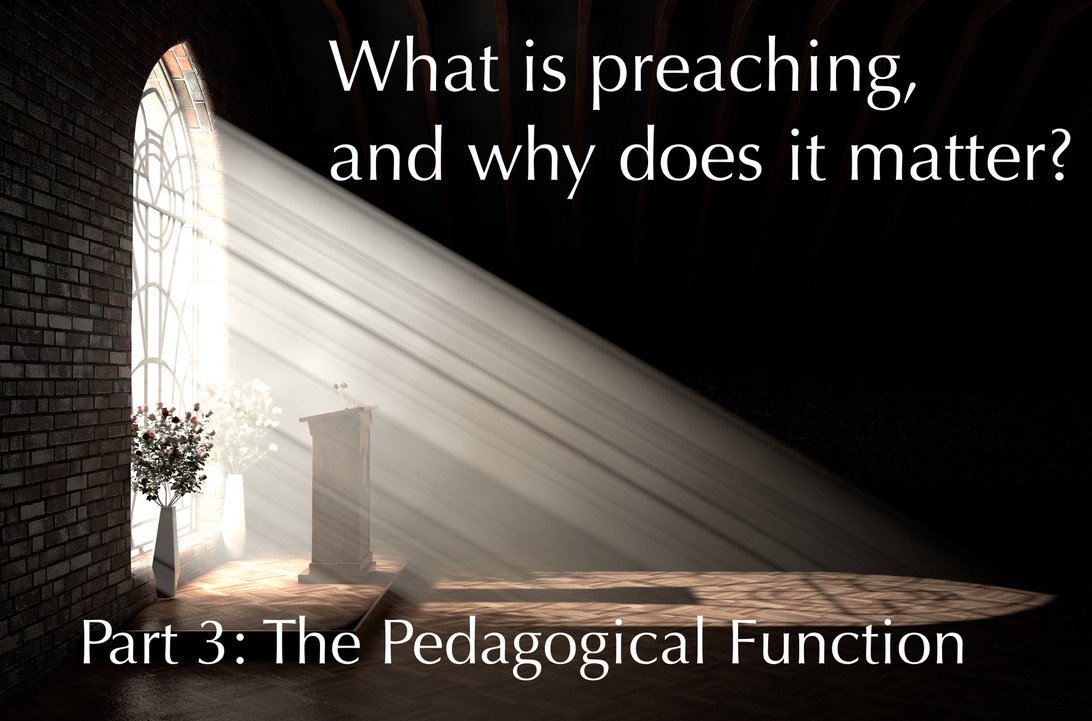In the end, discipleship is more caught than taught. So, the important question for a disciple-making preacher is not just “what are my hearers learning from the content of my preaching?” but, “what are they learning from the example of my preaching?” How we preach is as important as what we preach. Here are three important ways our practice of preaching will shape the discipleship of our church.
True fishermen never stop looking for just the right combination of bait and technique to catch a fish in any given pond or stream. Lure, minnow, worms or stink bait? Spinner, jig, or fly? They study fish and habitats endlessly, to make the best possible choices, and increase their chances of catching the “big one.”
I’m no fisherman, but I think I understand their drive. As a preacher, I’m always looking for the “big one” — the big idea of a given passage. But each passage is unique, and it swims in a particular pond or stream. Different kinds of texts work differently and communicate their truths in distinctive ways. If I am to coax the right truth consistently out of every text, I must learn to read each text according to its own rules. Like a fisherman who never stops studying fish and habitats, a preacher must make a life-long endeavour of studying literary genres and forms.
Once you have chosen a text and gotten the big picture of the story around the text and the story behind the text, it’s time to have your own dialogue with the text. Resist the temptation to jump right into the verse by verse discussion in your favorite commentary, or listen to a sermon from your favorite preacher on the same passage. This will only give you second-hand information. You need to have your own conversation, your own encounter.
Where do you begin your sermon preparation – with a contemporary need, or with a biblical text? This is a trick question, and you should not fall for it. Be careful neither to emphasize human need to the neglect of the text, nor to emphasize the text to the neglect of human need. To do the former is to wallow in a quagmire of questions with no real answers. To do the latter is to try to preach the Bible while missing the point of the Bible.
I used to have a cartoon clipping on my desk portraying the weekly evolution of a pastor. It was a chart, patterned after those old “evolution of man” illustrations. On Monday, the pastor was collapsed like a puddle on the floor. On Tuesday, he was crawling. Each day he progressed a bit more until Sunday, when he was erect, composed, dressed and in his right mind, ready to take on the world. Then, on Monday, he was a puddle again, and the whole thing started over.
If you’re like me, you’ve experienced those Mondays. The highs and lows of Sunday have left you physically, mentally, emotionally, and perhaps even spiritually depleted. I’m pretty sure Jeremiah wrote Lamentations on a Monday. A lot of preachers I know take Monday off, but I never did — just because I didn’t want to spend my day off feeling so worn out. Besides, taking Monday off just postpones the inevitable. Yesterday’s sermon is history, but Sunday is only six days away. Better to go ahead and get back to work.
I’m on record as being strongly opposed to preaching someone else’s sermons. So why would I have a “Sermon Seeds” category in this blog, where I give you preaching ideas?
No evangelical preacher I know would think of making a list of “qualities of a good sermon” without including “Biblical” at or near the top of the list. But what do we mean when we say the sermon should be biblical? We may not have such a ready answer for that one!
You’re overwhelmed with the unreasonably heavy demands of ministry, and you also need to spend time with your wife and kids. What pastor really has the time to prepare an original sermon every week? Why should every sermon be your own?
I want to suggest three important reasons!
What would make your list of qualities of a good sermon? For some, the priority is on the substance of the message. Others recognize that it doesn’t matter what you intend to say if you can’t say it clearly enough for the message to be understood. For others, interest is paramount — whatever the sermon is, it should not be boring!
Which perspective is correct? Like many either-or questions, the answer is “yes!” All of the above! So, here is my current list …











This is the prophetic function of preaching: naming our brokenness. Peeling back the layers of our denial, our deflection, and our self-deception to give a name to the self-destructive inclination of our hands, our heads, and our hearts. Why does this matter? Because only when our rebellion is named can we repent of it. And only when we repent can we experience redemption. And only through redemption can we enjoy restoration. Naming our brokenness is the at the trailhead to the only possible path to wholeness, healing, and grace.